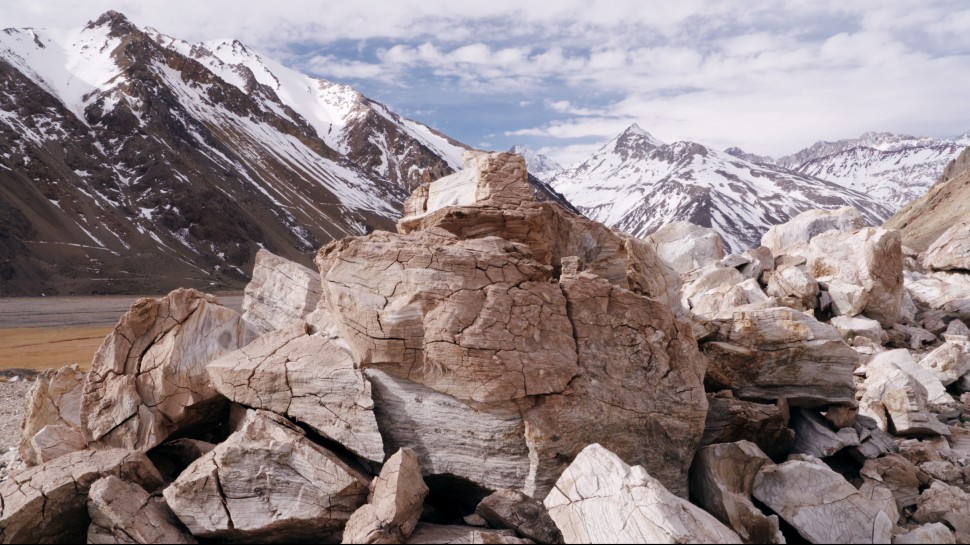
Patricio Guzmán's
Chile Trilogy
The long career of Patricio Guzmán (b. 1941) as a documentarian and activist has courageously focused on the turbulent, tragic history of his native Chile since the 1973 overthrow of Leftist President Salvador Allende— the world’s first democratically elected Socialist leader—by the US-backed repressive dictator Augusto Pinochet. A firsthand witness to Allende’s fall, Guzmán completed his first major film, The Battle of Chile, at tremendous personal risk—only after escaping imprisonment by Pinochet's forces and, with the help of the Swedish embassy, smuggling his precious reels of film to Europe, where he has remained in exile to this very day. In 2010, Guzmán returned to Chile to reexamine the traumatic past, this time through a different lens: by looking closely at the country’s singular topography and focusing on the arid Atacama Desert. In the Atacama, Guzmán discovered a profound connection between two impossible searches underway: those of scientists with powerful telescopes directed towards the heavens and those of devastated families looking downward to search for the bones of their loved ones, victims of the Pinochet regime, scattered into the sand in order to silence their voices of resistance. Drawing poetic connections between the stars and the bones, between the astronomers and the victims’ families searching for the last remains of their loved ones, Nostalgia for the Light traces a moving and metaphysical path that draws urgent connection between Chile’s unique geography and its troubled past.
Continuing his project, Guzmán’s The Pearl Button looked next at Chile’s long coastline to discover the intertwined histories of the nation’s almost entirely vanquished indigenous peoples and the terrible toll of desaparecidos victimized throughout Pinochet’s devastating regime. A haunting pattern is revealed between the systematic cruelty of the 19th and 20th centuries against the most vulnerable, a brutal repression countered only by the rare courage of those who witnessed and survived, and those who today vow, against great odds, that the past shall not repeat itself. With his latest film The Cordillera of Dreams, Guzmán turns to Chile’s prominent Andes Mountains to complete an epic trilogy that closes with one of his most openly personal films. A ruminative meditation on childhood, memory and the vast sweep of Chilean history, Guzmán finds solace and unsettling questions in the mountains’ noble and immobile beholder. In the end, The Cordillera of Dreams makes an impassioned call for action, suggesting how human cruelty has destabilized the same climate—political and natural—and now threatens to destroy less with action than with inaction. Using geography to decipher not just the history but the very psyche of Chile, Guzmán’s powerful trilogy finds in landscape a resilient witness whose lasting and insightful testimony speaks most directly to those who are patient, compassionate and blessed with an open imagination able to envision a different future. – Haden Guest











